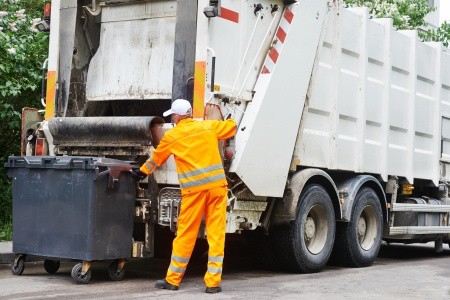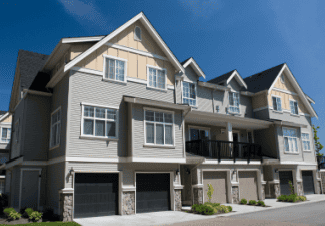Rental Property Dos And Don’ts: Trash Collection

Owners aren’t always aware of trash collection rules, which vary county to county, and may not be the same as for the owner’s primary residence. We also find that property owners can have a difficult time communicating to their tenants their responsibilities in regard to the removal of waste from the property.
Yet piled up trash and improper treatment of garbage can be big problems.
Always start with understanding any governing property association requirements regarding trash collection and removal. If your property is part of a homeowners or condominium owners association, there may be rules to follow. If those rules are not followed, there is the likelihood that you, as the owner, will be fined. Most HOAs define proper and acceptable storage for all trash bins and many retain the right to assess fees if cans are not removed from the curb on the day of trash collection. Be sure that you understand what your HOA requires and clearly share that information with your tenants. The tips we offered on owning rental properties in a college town apply: Clearly define any HOA rules to be followed and how you will collect any fines assessed for violations.
If there aren’t any association requirements, take a look at what the county your rental property is in requires.
Common county rules for the Cape Fear region include:
New Hanover County: The property owner must file an “Election of Responsibility” form with Cape Fear Public Utility Authority. Once this happens, any tenants will be able to set up and pay for their own water, sewer and trash services. A trash can for use and a recycling cart (if opted) will be delivered to the property once this process is completed.
City of Wilmington: Household trash collection must be registered for. According to information from the city, residents receive a bin and it must be curbside by 7:30 a.m. the day of scheduled pickup. City service includes a roll-out trash cart, a recycling cart, yard waste and bulky collection. Trash and yard waste are collected weekly and recycling is collected bi-weekly. Large items are collected upon request by calling the Solid Waste Office at (910) 341-7875. A choice of two trash cart sizes is available, either 95-gallons or 35-gallons.
The fee for the regular-sized (maxi) cart is $26.29 per month and the mini cart fee is $21.36 per month. The monthly rates include weekly trash and yard waste collections, bi-weekly recycling, as well as bulky item collection on request.
Brunswick County: Trash collection is paid for by county taxes. There is no extra set-up charge or fee to a tenant. The property owner needs to call the county to make ensure there is a can at the property for tenants’ use if there isn’t already one there.
Pender County: Pender County has a county dump available for all residents that is paid for through local taxes. Tenants need to collect trash stickers every year from the property owner, or get stickers directly from the county.
If private service is necessary and it is up to the property owner to contract with a waste removal provider, decide if this contract will be in your name or in the tenants’ name. Whatever option you choose, be sure that you are clear with your tenants regarding expectations.
When it comes to recycling, if it is not already provided by the county, consider leaving a separate waste receptacle for your tenants’ recyclables and clearly post what items can be recycled.
Of course, using a third-party management company will simplify all of this for you. For example, at Sweyer Property Management, we oversee numerous properties in numerous regions and know how to facilitate trash collection at your rental properties.
Source: wilmingtonbiz.com















 Accessibility
Accessibility